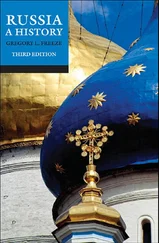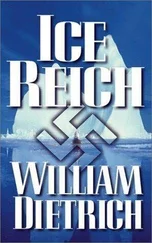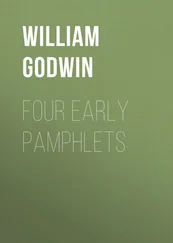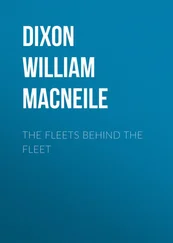William Dixon - Free Russia
Здесь есть возможность читать онлайн «William Dixon - Free Russia» — ознакомительный отрывок электронной книги совершенно бесплатно, а после прочтения отрывка купить полную версию. В некоторых случаях можно слушать аудио, скачать через торрент в формате fb2 и присутствует краткое содержание. Жанр: foreign_antique, foreign_prose, на английском языке. Описание произведения, (предисловие) а так же отзывы посетителей доступны на портале библиотеки ЛибКат.
- Название:Free Russia
- Автор:
- Жанр:
- Год:неизвестен
- ISBN:нет данных
- Рейтинг книги:3 / 5. Голосов: 1
-
Избранное:Добавить в избранное
- Отзывы:
-
Ваша оценка:
- 60
- 1
- 2
- 3
- 4
- 5
Free Russia: краткое содержание, описание и аннотация
Предлагаем к чтению аннотацию, описание, краткое содержание или предисловие (зависит от того, что написал сам автор книги «Free Russia»). Если вы не нашли необходимую информацию о книге — напишите в комментариях, мы постараемся отыскать её.
Free Russia — читать онлайн ознакомительный отрывок
Ниже представлен текст книги, разбитый по страницам. Система сохранения места последней прочитанной страницы, позволяет с удобством читать онлайн бесплатно книгу «Free Russia», без необходимости каждый раз заново искать на чём Вы остановились. Поставьте закладку, и сможете в любой момент перейти на страницу, на которой закончили чтение.
Интервал:
Закладка:
"In England you have no monks; once you had them; and then they built things – eh?"
This dwarf is certainly a wag. What, monks who work, and docks in the Frozen Sea! After telling me where he learned his English (which is of nautical and naughty pattern), the manikin comforts me with news that although the pilgrim-boat has gone back to Solovetsk (where her engines are to be taken out, and put by in warm boxes near a stove for the winter months), a provision-boat may sail for the monastery in about a week.
"Can you tell me where to find the captain of that boat?"
"Hum!" says the dwarf, slowly, crossing himself the while, and lipping his silent prayer, " I am the skipper!"
My surprise is great. This dwarf, in a monk's gown and cap, with a woman's auburn curls, the captain of a sea-going ship! On a second glance at his slight figure, I notice that his eyes are bright, that his cheek is bronze, that his teeth, though small, are bony and well set. In spite of his serge gown and his girl-like face, there is about the tiny monk that look of mastery which becomes the captain of a ship.
"And can you give me a passage in your boat?"
"You! English, and you wish to see the holy tombs? Well, that is something new. No men of your nation ever sail to Solovetsk. They come over here to buy, and not to pray. Sometimes they come to fight."
The last five words, spoken in a low key, come out from between his teeth with a snap which is highly comic in a man so lowly and so small. A lady living at Onega told me some days ago that once, when she was staying for a week at Solovetsk with a Russian party, she was compelled to hide her English birth, from fear lest the monks should kill her. A woman's fancy, doubtless; but her words came back upon my mind with a very odd sort of start as the manikin knits his brow and hisses at the English fleet.
"Where is your boat, and what is she called?"
"She lies in the lower port, by the Pilgrim's Wharf; her name is the 'Vera;' as you would say, the 'Faith.'"
"How do you call your captain?" I inquire of a second monk, who is evidently a sailor also; in fact, he is the first mate, serving on board the "Faith."
"Ivan," says the monk; a huge fellow, with hasty eyes and audacious front; "but we mostly call him Vanoushka, because he is little, and because we like him." Vanoushka is one of the affectionate forms of Ivan: Little Ivan, Little John. The skipper, then, is properly Father John.
As for the next ten days and nights we are to keep company, it may be best for me to say at once what I came to know of the queer little skipper in the long gown and with the woman's curls.
Father John is an infant of the soil. Born in a Lapland village, he had before him from his cradle the hard and hopeless life of a woodman and cod-fisher – the two trades carried on by all poor people in these countries, where the modes of life are fixed by the climate and the soil. In the summer he would cut logs and grass; in the winter he would hunt the sea in search of seal and cod. But the lad was smart and lively. He wished to see the world, and hoped in some future time to sail a boat of his own. In order to rise, he must learn; in order to become a skipper, he must study the art of guiding ships at sea. Some thirty miles from the hamlet where he lived stood Kem, an ancient town established on the Lapland coast by colonists from Novgorod the Great, in which town there was a school of navigation; rude and simple as became so poor a place, but better than none at all; and to this provincial school Father John contrived to go. That movement was his first great step in life.
From Kem you can see a group of high and wooded islands towards the rising sun, the shores of which shine with a peculiar light in the early dawn. They seem to call you, as it were, by a spell, into some paradise of the north. Every view is green, and every height is crowned by a church with a golden cross. These islands are the Solovetsk group; and once, at least, the lad went over from Kem in a boat to pray in that holy place. The lights, the music, and the ample cheer appealed to his fancy and his stomach; leaving on his mind an impression of peace and fullness never to be effaced.
He got his pass as a seaman, came over to Archangel, fell into loose ways, and meeting with some German sailors from the Baltic, listened to their lusty songs and merry tales, until he felt a desire to leave his own country and go with them on a voyage. Now sailors are scarce in the Russian ports; the Emperor Nicolas was in those days drafting his seamen into the Black Sea fleets; and for a man to quit Russia without a pass from the police was a great offense. Such a pass the lad felt sure he could never get; and when the German vessel was about to sail he crept on board her in the night, and got away to sea without being found out by the port police.
The vessel in which he escaped from his country was the "Hero," of Passenburg, in Hanover, plying as a rule between German and Danish ports, but sometimes running over to the Tyne and the Thames. Entered on the ship's books in a foreign name, Father John adopted the tastes of his new comrades; learned to eat English beef, to drink German beer, and to carry himself like a man of the world. But the teaching of his father and his pope was not lost upon him, even in the slums of Wapping and on the quays of Rotterdam. He began to pine for religion, as a Switzer pines for his Alp and an Egyptian for his Nile. What could he do? The thought of going home to Kem was a fearful dream. The lash, the jail, the mine awaited him – he thought – in his native land.
Cut off from access to a priest of his own religion, he talked to his fellows before the mast about their faith. Some laughed at him; some cursed him; but one old sailor took him to the house of a Catholic priest. For four or five weeks Father John received a lesson every day in the creed of Rome; but his mind misgave him as to what he heard; and when his vessel left the port he was still without a church. In the Levant, he met with creeds of all nations – Greek, Italian, Lutheran, Armenian – but he could not choose between them, and his mind was troubled with continual longings for a better life.
Then he was wrecked in the Gulf of Venice, and having nearly lost his life, he grew more and more uneasy about his soul. A few months later he was wrecked on the coast of Norway; and for the second time in one year he found himself at the gates of death. He could not live without religion; and the only religion to whisper peace to his soul was that of his early and better days. But then the service of his country is one of strict observance, and a man who can not go to church can not exercise his faith. How was he to seek for God in a foreign port?
A chance of coming back to Russia threw itself in his path. The ship in which he served – a German ship – was chartered by an English firm for Archangel; and as Father John was the only Russ on board, the skipper saw that his man would be useful in such a voyage. But the news was to John a fearful joy. He longed to see his country once more, to kneel at his native shrines, to give his mother some money he had saved; but he had now been twelve years absent without leave, and he knew that for such an offense he could be sent to Siberia, as he phrased it, "like a slave." His fear overcame his love, and he answered the skipper that he would not go, and must quit the ship.
But the skipper understood his trade. Owing John some sixteen pounds for pay, he told him that he had no money where he lay, and could not settle accounts until they arrived in Archangel, where he would receive his freight. "Money," says the Russ proverb, "likes to be counted," and when Father John thrust his hands into empty pockets, he began to think, after all, it might be better to go home, to get his wages, and see what would be done.
Читать дальшеИнтервал:
Закладка:
Похожие книги на «Free Russia»
Представляем Вашему вниманию похожие книги на «Free Russia» списком для выбора. Мы отобрали схожую по названию и смыслу литературу в надежде предоставить читателям больше вариантов отыскать новые, интересные, ещё непрочитанные произведения.
Обсуждение, отзывы о книге «Free Russia» и просто собственные мнения читателей. Оставьте ваши комментарии, напишите, что Вы думаете о произведении, его смысле или главных героях. Укажите что конкретно понравилось, а что нет, и почему Вы так считаете.











